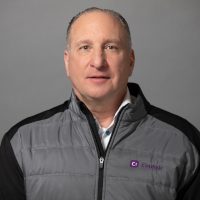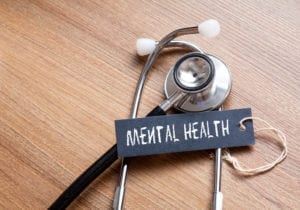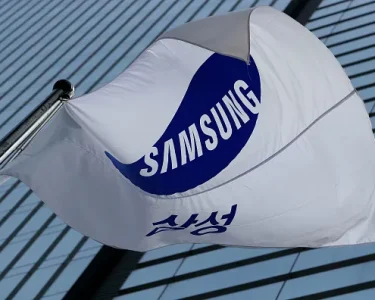The following is a guest article by Roy Reichbach, Founder and Chairman of the Board at Counslr
We are living in a moment of profound transformation in mental health care. Demand for support is surging, yet access remains uneven and too often out of reach. The traditional mental health care system, valuable as it is, simply cannot scale to meet the needs of today’s increasingly stressed and digitally connected population.
This is where technology must step in.
I understand the skepticism. When we talk about tech in mental health, headlines often leap to fears about chatbots replacing therapists or AI dispensing cold, algorithmic diagnoses. This anxiety isn’t unfounded; many companies have rushed to automate care in ways that feel impersonal or even irresponsible. We’ve seen countless experiments with generative AI attempting to provide therapy and platforms prioritizing scalability over clinical integrity. There’s also been growing concern over privacy breaches and the commodification of user data. The result is a widespread wariness, particularly among clinicians and patients alike, about whether technology is truly equipped to support something as nuanced and personal as mental health care.
Still, the potential for technology to do good in this space is enormous. When used thoughtfully, tech can fill critical gaps: providing after-hours support, reducing wait times, enabling anonymity, and reaching populations traditionally underserved by brick-and-mortar systems. It’s not about replacing human care, but augmenting it, expanding it, and adapting it to modern lives. In the same way that telehealth became a lifeline during the pandemic, mental health tech more broadly has the opportunity to become a permanent, accessible layer of support that exists alongside traditional models.
Tech that Reaches the Traditionally Unreachable
At Counslr, our model is different—and our results are encouraging.
A new peer-reviewed study published in JMIR Formative Research analyzed how people use our 24/7/365, text-based mental health support app. What we found underscores the power of technology: not to replace traditional care, but to complement and expand it.
Notably, over 80% of sessions occurred between 7 PM and 5 AM, a time when traditional services are rarely available. The vast majority of users accessed support via on-demand sessions, signaling a deep desire for real-time, flexible mental health support. These weren’t just quick check-ins; session lengths averaged 40 to 45 minutes, showing that users are meaningfully engaging with licensed professionals via text.
Most compelling is that 88% of our users had never previously engaged with mental health services. That’s not just impressive; it’s transformative. These are the silent sufferers, the hesitant, the underserved. Technology didn’t create their need; it finally gave them a way to meet it.
Our approach at Counslr is intentionally human. We connect users with licensed counselors via text, a mode of communication that feels natural to many, especially younger populations. It’s private, stigma-free, and accessible from anywhere. That convenience matters immensely when someone is having a tough moment at midnight, alone in their dorm room or at home after a long shift, and unsure whether to reach out at all. But convenience alone isn’t enough. The emotional nuance and trust that people need in vulnerable moments can’t be delivered by an algorithm. Real healing comes through real human connection. That’s why humans must remain at the center of tech-based mental health solutions. When human expertise is paired with the accessibility of modern technology, the result is a powerful model that meets people where they are, literally and emotionally.
We’re not alone in recognizing the need for new delivery models. As health systems strain and the mental health crisis deepens, scalable, human-supported digital platforms like ours must be part of the response. Real support, in real time, for real people. There is a significant lack of access to specialty mental health care in rural areas in the US. In fact, it is estimated that as many as 65% of nonmetropolitan counties do not have psychiatrists and over 60% of rural Americans live in designated mental health provider shortage areas. Likewise, mental health inequities are exacerbated in urban areas as well, with certain disadvantaged population groups more likely to report more mental health issues and greater difficulties in accessing mental health services.
Of course, no mental health app, platform, or digital tool is a silver bullet. But we should be careful not to let fear about what technology might do obscure what it’s already doing: opening doors, reducing stigma, and reaching people who have long been left behind.
At Counslr, we see the future of mental health care as both high-tech and deeply human. The stakes are too high for it to be anything less.
 About Roy Reichbach
About Roy Reichbach
Roy Reichbach is a tech industry entrepreneur who founded Counslr in 2019 with the goal of utilizing tech to make mental health support more accessible by removing the common barriers to care: cost, inconvenience, and stigma. Since its inception, Counslr has grown to serve schools, organizations, businesses, and communities of all shapes and sizes.
Roy is the CEO and serves on the Board of Directors of Phenix Real Time Solutions, the world leader in the synchronous delivery of video in real time and at scale, and was previously the President and CEO of leading end-to-end streaming video platform NeuLion, Inc.
After earning his BA and JD from Fordham University, Roy began his career as a trial lawyer in New York, later serving as VP-Legal at Computer Associates International and then General Counsel for the New York Islanders, where he also represented the team on the NHL’s Board of Governors.
A married father of five, Roy is driven by a deep commitment to making a difference in his family, his community, and the world; he serves as Chairman of Smile Train, a global charity providing free cleft care to children, and co-founded Counslr to ensure that support is always within reach for those who’ve struggled in silence, inspired by the kind of care he’d want for his own children.




